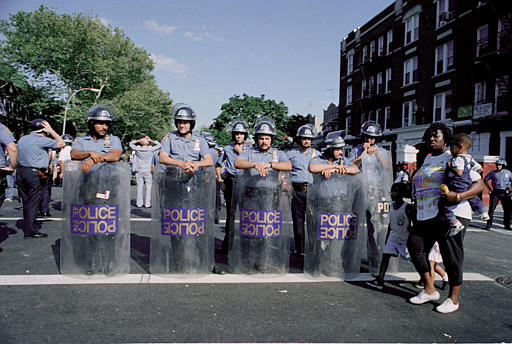Three years earlier, Israel came the closest it had ever come to being destroyed when their Prime Minister obeyed Henry Kissinger’s orders and did not strike first, despite that they had a few hours notice that they were about to be attacked on Yom Kippur. One year before the raid, United Nations passed a resolution saying that Zionism, the national movement of the Jewish people was the same as racism. So both Israel and America needed some good news.

On America’s two hundredth birthday the tiny nation Israel, surrounded by enemies and hated by the United Nations boosted the morale of America and much of the Western world, with a daring raid.
More than anything else that happened at any gala celebration of the special anniversary of the U.S., Israel’s raid on Entebbe reminded the world of the real “Spirit of 1776”–freedom is worth fighting for.
This is how it happened.
On June 27, 1976, Air France Flight 139, carrying 248 passengers and a crew of twelve, took off from Athens, heading for Paris. Soon after the 12:30 p.m. takeoff, the flight was hijacked by two Palestinians from the Popular Front for the Liberation of Palestine and members of the German “Revolutionary Cells (RZ)” (Wilfried Böse and Brigitte Kuhlmann) The terrorists commandeered the flight, diverting it to Benghazi, Libya. The plane left Benghazi, and at 3:15 it arrived at Entebbe Airport in Uganda.
At Entebbe, the four hijackers were joined by three “friends” supported by the pro-Palestinian forces of Uganda’s despotic president, Idi Amin. The hijackers were led by the German, Böse. They demanded the release of 40 Palestinian terrorists held in Israel and 13 other detainees imprisoned in Kenya, France, Switzerland, and Germany–and if these demands were not met, they threatened to begin killing hostages on July 1, 1976 . Eventually that deadline was extended to July 4th.
The hijackers held the passengers hostage in the transit hall of Entebbe Airport and released all the hostages except for Israelis and Jews whom they threatened to kill if Israel did not comply with their demands.
Upon the announcement by the hijackers that the airline crew and non-Israeli/non-Jewish passengers would be released and put on another Air France plane that had been brought to Entebbe for that purpose, Flight 139’s Captain Michel Bacos told the hijackers that all passengers, including the remaining ones, were his responsibility, and that he would not leave them behind. Bacos’ entire crew followed suit.
“When I was being held hostage and had the possibility of being released I called the crew together and said: ‘We have to remain with the passengers until the end — that is our duty’. It was an immediate, unhesitating decision. Every member of my crew agreed with me. We would stay with the hostages no matter what and return with them to France. To me it was not just a question of the law — it was to do with basic values of decency and human behavior. It was, simply put, the right thing to do.”
 A French nun also refused to leave, insisting that one of the remaining hostages take her place, but she was forced into the awaiting Air France plane by Ugandan soldiers. A total of 83 Israeli and/or Jewish hostages remained, as well as 20 others, most of whom included the crew of the Air France plane.
A French nun also refused to leave, insisting that one of the remaining hostages take her place, but she was forced into the awaiting Air France plane by Ugandan soldiers. A total of 83 Israeli and/or Jewish hostages remained, as well as 20 others, most of whom included the crew of the Air France plane.
Early in the morning of July 4th came one of the most daring, spectacular rescues of modern times.
For nearly a week, pro-Palestinian skyjackers had held 105 hostages—mostly Israeli—at Uganda’s Entebbe Airport. Now, with time rapidly slipping away and the deadline merely hours off, death seemed ever more certain for the terrified captives.
Suddenly three Israeli C-130 Hercules transports, guns flaring, appeared in the dark sky over the airport. Shortly after midnight on July 4th 1976 Israeli Planes landed at Entebbe and began their now famous rescue.
The entire assault lasted less than 30 minutes and all six of the hijackers were killed. Yonatan Netanyahu, the Prime Minister’s older brother and team leader was the only Israeli commando killed during the operation. Five additional soldiers were wounded (one of the five was paralyzed) and three Israeli hostages were killed during the initial exchange of fire and approximately 10 were wounded. An elderly woman, Dora Bloch, had been evacuated to hospital earlier and was killed in revenge after the Israeli forces left Uganda.
 |
| Yoni Netanyahu of Blessed Memory |
The elder Netanyahu was shot near the airport entrance, apparently by a Ugandan sniper who fired at the Israeli commandos from the nearby control tower. A total of 45 Ugandan soldiers were killed during the raid, and about 11 Ugandan Army Air Force MiG-17 grounded fighter planes at Entebbe Airport were destroyed. The rescued hostages were flown out to Israel via Nairobi shortly after the fighting.
This operation will certainly be inscribed in the annals of military history, in legend and in national tradition,” prime minister Yitzhak Rabin said in the Knesset later that day.
The decision to send Israeli troops into Uganda had been an agonizing one with defense minister Shimon Peres pushing for a military option and Rabin, the former general, aware of the fact that suggesting military plans for a miracle rescue, and authorizing them were two entirely different matters.
IDF military archives kept hidden until last year- 39 years after the mission and published in the Times of Israel give us an idea of the behind the scenes discussions about approving the mission.
On July 2 Peres wrote to Rabin that “the final twist” in the plan was that the most forward squad would leave the [Israeli millitary] plane in a flag-bedecked Mercedes, masquerading as the Ugandan strongman Idi Amin, who was due back from Mauritius. “I don’t know if it’s possible, but interesting,” Peres wrote in the note, published by the IDF Archive.
Rabin responded: “1. When is Idi Amin due back from Mauritius? 2. Why a Mercedes?” He signed the note, “Yitzhak.”
The following day, according to the archival information, Peres wrote to Rabin: “How does an operation start? 1. They say it’s impossible 2. The timing is wrong 3. The government won’t authorize it. The only question I’ve seen, and still see, is ‘how will it end.’”
At 2:30 in the afternoon on July 3, Rabin told the security cabinet, for the first time since the hostage situation developed on June 27, that he was in favor of the military option. “Not out of an idealization, far from that, but with knowledge toward what we are heading, toward wounded, toward dead… nonetheless, I recommend that the government to authorize this,” he said, according to Michael Bar-Zohar’s account in “Peres: A Political Biography” (Hebrew).
Peres, later that evening, with the planes airborne, wrote, “The planes are on their way and with them the fate of Israel.”
The government of Uganda later convened a session of the United Nations Security Council to seek official condemnation of the Israeli raid, as a violation of Ugandan sovereignty. The Security Council ultimately declined to pass any resolution on the matter, which was almost as big a miracle as the success of the raid.
In his address to the Security Council the Israeli ambassador to the United Nations, Chaim Herzog said:
We come with a simple message to the Council: we are proud of what we have done because we have demonstrated to the world that a small country, in Israel’s circumstances, with which the members of this Council are by now all too familiar, the dignity of man, human life and human freedom constitute the highest values. We are proud not only because we have saved the lives of over a hundred innocent people—men, women and children—but because of the significance of our act for the cause of human freedom.
Those were words the world quickly forgot.
 For refusing to depart and leave some of his passengers alone when given leave to do so by the hijackers, Captain Bacos was reprimanded by his superiors at Air France (gotta love the French) and suspended from duty for a period.
For refusing to depart and leave some of his passengers alone when given leave to do so by the hijackers, Captain Bacos was reprimanded by his superiors at Air France (gotta love the French) and suspended from duty for a period.
Chaim Herzog’s words still ring true. That act of rescuing 100+ hostages still ring true. The Act of fighting for freedom still rings true.
The lesson of Entebbe was the same lesson as the Americans had learned 200 years before on July 4th 1776– freedom is important enough to fight for. Both the US and Israeli governments would be well served to remember that lesson a little more often.
On the 25th anniversary of the raid, Prime Minister Arial Sharon spoke:
“In these confusing times, when there are those who question our capabilities or the justness of our cause, we return to those few hours when Israel stood up and in the face of the entire community of nations, waged a battle against violence and terrorism, proving that we can win. These days, when we are in the midst of an ongoing battle against terrorism, violence and incitement, and when we are making a joint national effort to return to political negotiations without fire, we must rekindle the spirit of that operation. The secret of our strength lies in such spirit and faith, and if we learn how to renew it we will be able to meet all the challenges that still lie ahead.”
Forty years ago it was a different world. Much of the intervening time since the raid, was filled with Western appeasement of terrorism. We negotiate, we give in to their demands, we refuse to call them terrorists, we celebrate terrorists like Arafat and Abbas,  we even blame terrorist acts on the victims, or the weapons the terrorists use.
we even blame terrorist acts on the victims, or the weapons the terrorists use.
In 1976 Israel stood up to terrorists and their daring raid was celebrated across the world. Today it is the terrorists who are celebrated, Israel is condemned for protecting herself from terror, and this American administration refuses to wipe out the terror that threatens it, and negotiates with the rogue regimes who sponsor the terror.
Entebbe may have been one of the final acts of of Western defiance, sure the United States sends our brave heroes to fight the terrorists, but at the same time we refuse to give them the tools, or the rules of engagement which would allow them to finish the job. Instead with every act of appeasement, with each acquiescence to terrorist demands, terrorism is suckling at the teat of Western lack of resolve. In the end, the West is feeding the monster that most assuredly will cause its destruction.
The video below comes from a documentary Operation Thunderbolt which through interviews and old newsreels tells the story of the mission. It’s a forty-three minutes long, but it is well worth it.






